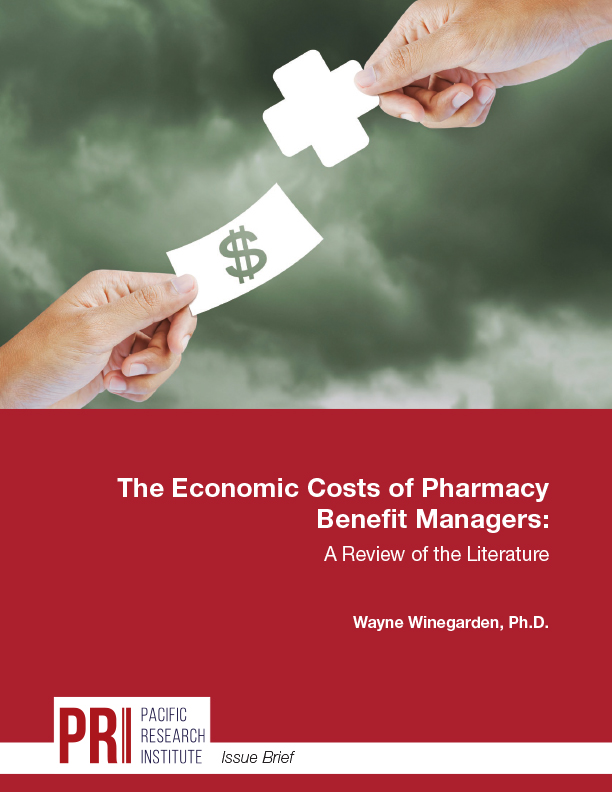
The Economic Costs of Pharmacy Benefit Managers
Exploring a tool that millions of Americans use every day when paying for prescription drugs, the Pacific Research Institute today released a new research brief exploring how Pharmacy Benefit Managers (PBMs) impact prescription drug costs, access, and patient care.
“Pharmacy Benefit Managers impact more than 260 million Americans when they purchase their prescription drugs, but most people have no idea what they are, or the big impact they play in their health care,” said Dr. Wayne Winegarden, PRI’s Senior Fellow in Business and Economics and the author of the new issue brief. “Our new brief explores the many ways PBM’s affect prescription drugs, especially the access to, and the costs of, the life-savings medicines they depend upon.”
Winegarden’s new brief, The Economic Costs of Pharmacy Benefit Managers: A Review of the Literature. reviews recent studies on PBMs. Among the key findings:
- PBMs have an undue influence over the medicines that patients can access;
- They provide incentives for higher list prices for medications that come with large rebates and discounts; and
- They trigger higher patient co-pays than necessary given the large discrepancy between list prices and the prices people pay at the counter.
Considering the challenges with PBMs, Winegarden argues that the current system needs more transparency to transform what is currently a bloated and expensive system. The CEO of Express Scripts recently said in an interview with CNBC that Anthem was unlikely to extend its contract with the PBM following its 2019 contract expiration. This follows a $15 billion lawsuit that Anthem filed against Express Scripts in March 2016 alleging that the PBM charged excess prices for drugs.

